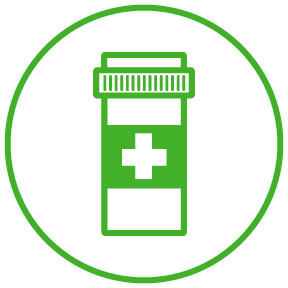
Medications and your oral health
Medications are designed to help you feel better, but some can have a negative effect on your oral health.
One of the most common side effects is dry mouth. More than 400 medications can cause this condition, including decongestants, antidepressants, sedatives, antihistamines and blood pressure drugs.1 Because saliva helps to keep your mouth clean, you can develop gum infections and tooth decay when there isn’t enough of it.
Some medications can leave a metallic or bitter taste in your mouth, or change the taste of foods. Among them are nicotine skin patches, respiratory inhalants and drugs for heart conditions.
Even aspirin can have side effects. As a blood thinner, aspirin can help to prevent a heart attack, but it also increases the chances of bleeding gums following a slight injury or infection.
Other possible complications from medications are mouth sores, gum swelling and bone loss.
If medicine triggers an oral health problem, ask your doctor about alternatives and work with your dentist to relieve pain. Be sure to provide the dentist with a complete list of all the medications you use.
This information is available for download as an oral health flyer.
1 “Do You Have Dry Mouth?” Journal of the American Dental Association 133 no. 10 (2002): 1455. 2 Mayo Clinic, “Nearly 7 in 10 Americans Take Prescription Drugs, Mayo Clinic, Olmsted Medical Center Find,” web.